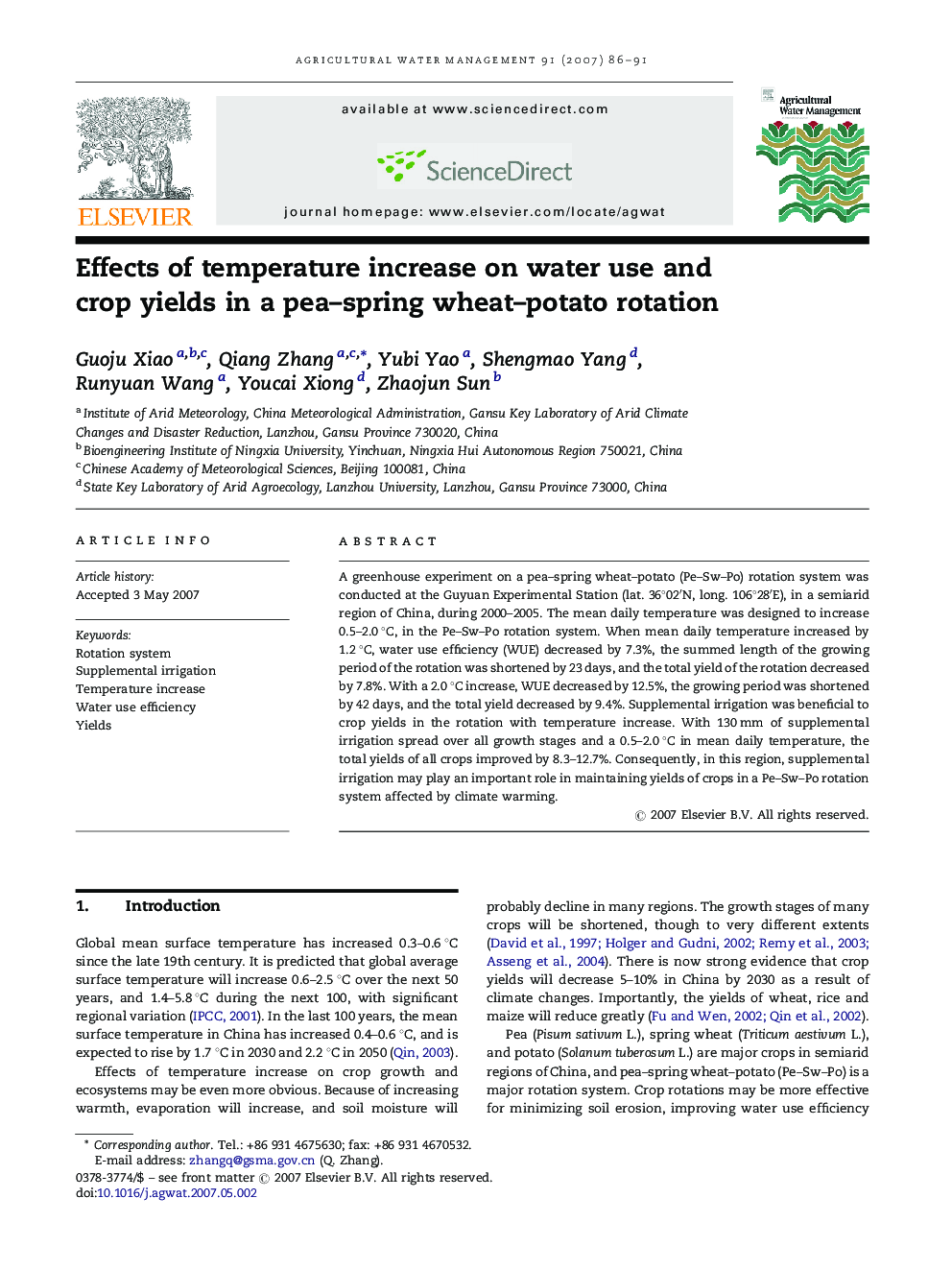| Article ID | Journal | Published Year | Pages | File Type |
|---|---|---|---|---|
| 4480335 | Agricultural Water Management | 2007 | 6 Pages |
Abstract
A greenhouse experiment on a pea-spring wheat-potato (Pe-Sw-Po) rotation system was conducted at the Guyuan Experimental Station (lat. 36°02â²N, long. 106°28â²E), in a semiarid region of China, during 2000-2005. The mean daily temperature was designed to increase 0.5-2.0 °C, in the Pe-Sw-Po rotation system. When mean daily temperature increased by 1.2 °C, water use efficiency (WUE) decreased by 7.3%, the summed length of the growing period of the rotation was shortened by 23 days, and the total yield of the rotation decreased by 7.8%. With a 2.0 °C increase, WUE decreased by 12.5%, the growing period was shortened by 42 days, and the total yield decreased by 9.4%. Supplemental irrigation was beneficial to crop yields in the rotation with temperature increase. With 130 mm of supplemental irrigation spread over all growth stages and a 0.5-2.0 °C in mean daily temperature, the total yields of all crops improved by 8.3-12.7%. Consequently, in this region, supplemental irrigation may play an important role in maintaining yields of crops in a Pe-Sw-Po rotation system affected by climate warming.
Related Topics
Life Sciences
Agricultural and Biological Sciences
Agronomy and Crop Science
Authors
Guoju Xiao, Qiang Zhang, Yubi Yao, Shengmao Yang, Runyuan Wang, Youcai Xiong, Zhaojun Sun,
